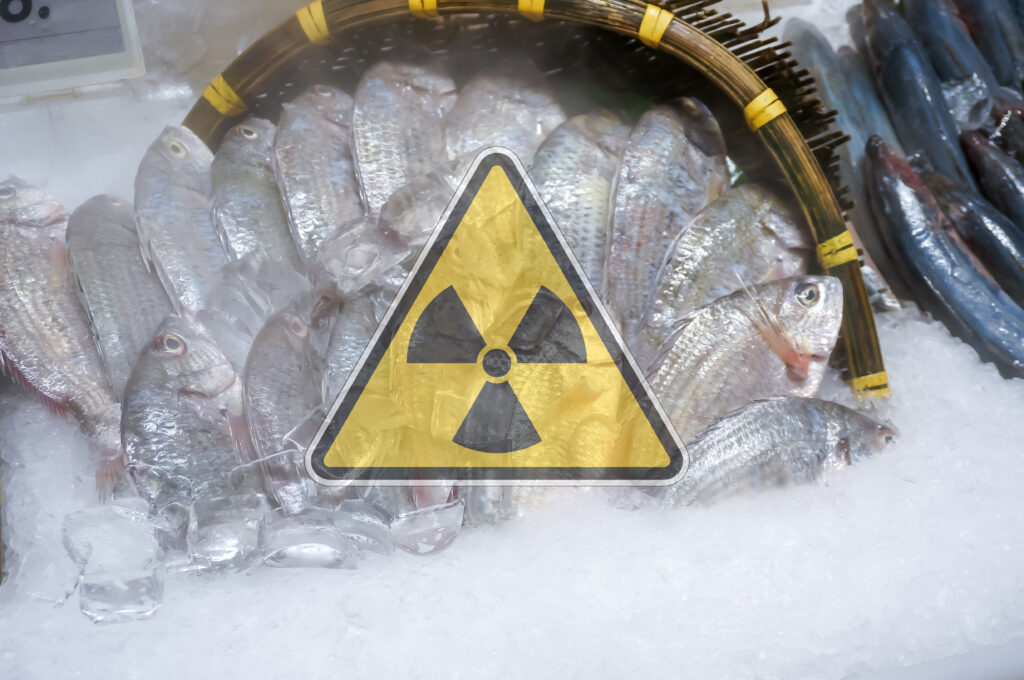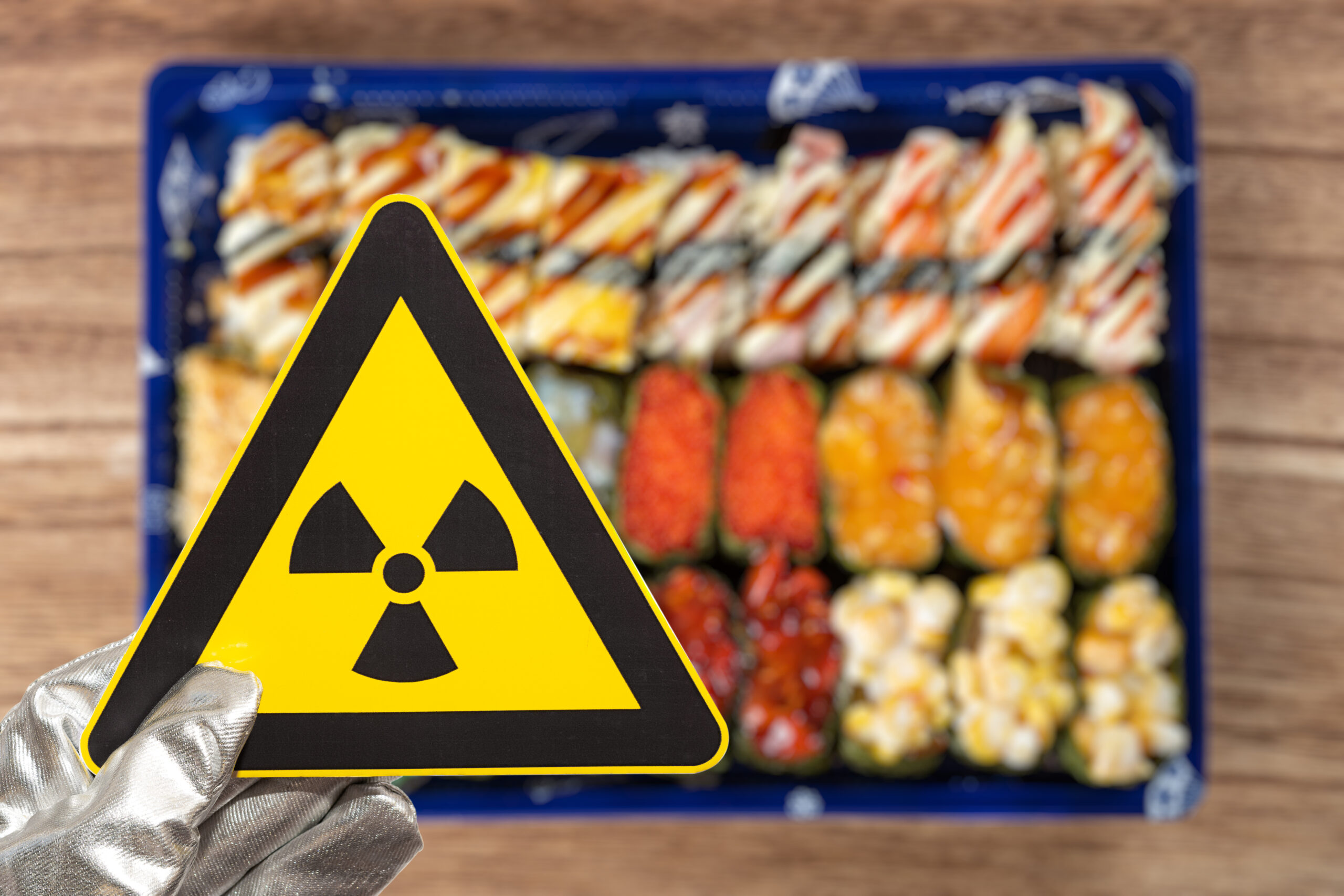China’s imports of seafood from Japan have seen a significant decline, plummeting by 67% in the wake of renewed concerns about radiation levels from the Fukushima Daiichi nuclear disaster. This sharp drop in seafood imports reflects the growing apprehension among Chinese consumers and businesses regarding food safety and radiation contamination.
Japan’s Fukushima Daiichi nuclear plant experienced a catastrophic meltdown following a massive earthquake and tsunami in 2011. This event resulted in the release of radioactive materials into the environment, causing widespread concerns about the safety of Japanese produce, particularly seafood, which is a significant export to China.

According to data from China’s General Administration of Customs, seafood imports from Japan amounted to 27,240 metric tons in 2022, worth approximately $292 million. However, in 2023, as of September, imports have fallen dramatically to just 8,996 metric tons, valued at approximately $102 million.
Chinese authorities have implemented stricter inspection and testing procedures for Japanese seafood imports, causing delays and increasing costs for businesses. Some Chinese importers have also reduced or halted orders of Japanese seafood altogether due to fears of radiation contamination.
The decline in seafood imports has been a blow to Japanese exporters who rely on the Chinese market. Japanese officials have continually emphasized the safety and rigorous testing of their seafood products, but they have struggled to dispel lingering concerns among Chinese consumers.
Dealing with Fallout
This drop in seafood imports from Japan also comes at a time when China is actively seeking alternative sources of seafood to meet growing demand. Countries like Norway, Russia, and Vietnam have benefitted from China’s reduced reliance on Japanese imports.
Industry experts say regaining Chinese consumers’ trust will be critical for Japan to recover its seafood export market. Japanese exporters have been actively promoting their safety measures and testing protocols to reassure foreign buyers. However, the road to recovery may be long and challenging, with concerns about radiation from Fukushima Daiichi continuing to cast a shadow over Japanese seafood exports to China.
As the international community closely monitors developments in Japan’s efforts to address the Fukushima nuclear disaster and ensure food safety, the future of Japanese seafood exports to China remains uncertain. Rebuilding trust and establishing comprehensive safety measures will be essential steps for Japan to regain its position as a reliable source of seafood for the Chinese market.
Fukushima Disaster
1. Earthquake and Tsunami:
- On March 11, 2011, a massive magnitude 9.0-9.1 earthquake struck off the northeastern coast of Japan. This undersea megathrust earthquake was one of the most powerful ever recorded.
- The earthquake generated a massive tsunami, with waves reaching heights of up to 40 meters (131 feet) in some areas.
- The tsunami inundated the Fukushima Daiichi Nuclear Power Plant, disabling its power supply and cooling systems.
2. Nuclear Reactor Failures:
- The loss of power and cooling systems at the Fukushima Daiichi plant resulted in a series of nuclear reactor failures.
- Reactors 1, 2, and 3 experienced partial meltdowns, while reactors 4, 5, and 6 were shut down at the time of the earthquake and remained relatively stable.
- Hydrogen gas explosions occurred in the buildings housing reactors 1, 2, and 3, damaging their structures and releasing radioactive materials into the atmosphere.
3. Evacuation and Contamination:
- In the immediate aftermath of the disaster, the Japanese government ordered the evacuation of residents living within a 20-kilometer (12.4-mile) radius of the plant.
- Radioactive releases from the damaged reactors led to contamination of the environment, including soil, water, and food supplies.
- A significant area around the plant remained off-limits for years, displacing thousands of residents.
4. Response and Recovery:
- Japanese authorities declared a state of emergency and initiated efforts to stabilize the damaged reactors.
- Cooling was gradually restored to the reactors using water injection and cooling systems.
- Over the years, a massive cleanup and decontamination effort took place in the affected area.
- The long-term decommissioning of the Fukushima Daiichi plant remains an ongoing and complex process.
5. Health and Environmental Impact:
- The release of radioactive materials led to concerns about the health of residents and workers involved in the cleanup.
- While there were no immediate deaths due to radiation exposure, there have been debates and studies on potential long-term health effects.
- The Fukushima disaster had significant environmental consequences, affecting marine life and ecosystems.
Also read: Where is China’s Defence Minister? Li Shangfu missing for two weeks, reports













